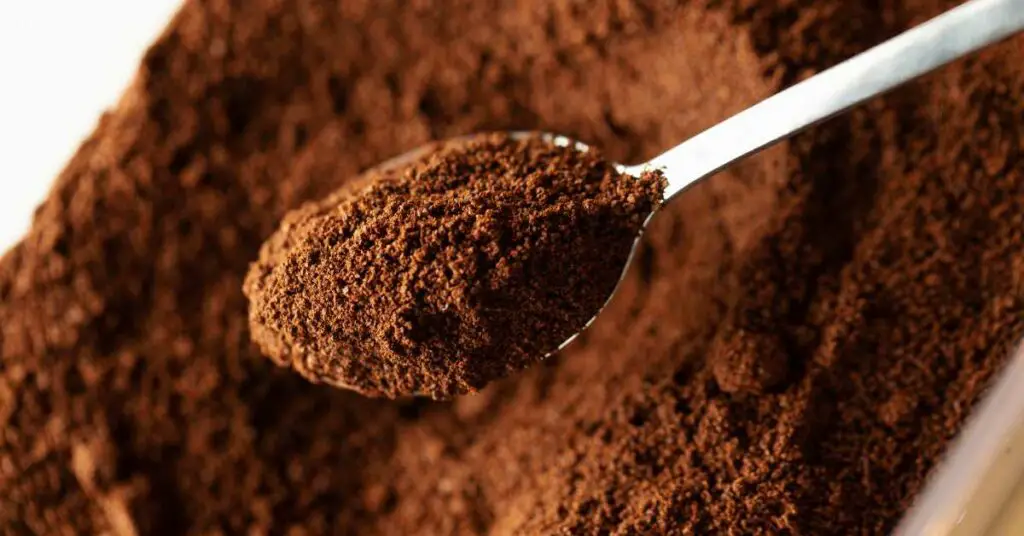Millions of people worldwide drink coffee every day, making it one of the most popular drinks in the world.
Coffee is common in many people’s morning routines because of its potent aroma and energising flavour.
Yeast is a fungus commonly used to produce bread, beer, and other fermented foods.
While yeast is usually associated with this food and beverages, recent research has suggested that it may also be present in coffee.
The answer is No; there isn’t any yeast naturally present in coffee. But some processing methods are now using yeast for fermentation.
In this article, we will explore whether coffee contains yeast and what implications this may have for coffee drinkers.
So, stay till the end of the article to find out more.
Yeast
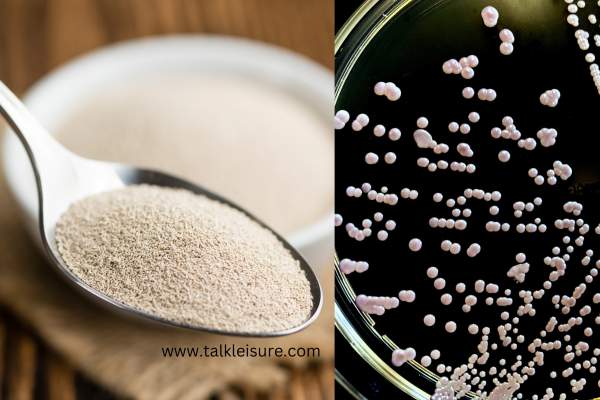
Yeast is a type of fungus that is important for making bread, beer, and wine.
This single-celled fungus grows naturally in the air, water, and soil.
The process by which yeast cells eat simple sugars and turn them into carbon dioxide gas and alcohol is called fermentation.
Yeast makes bread, beer, wine, and other fermented foods.
It’s what causes our bread to rise and our beer to fizz.
When yeast cells feed on sugar, they release carbon dioxide, gas, and alcohol as waste.
This gives baked foods their light feel and alcoholic drinks taste.
Biofuels and other industrial goods can also be made with yeast.
What Is Yeast Processing In Coffee Production?
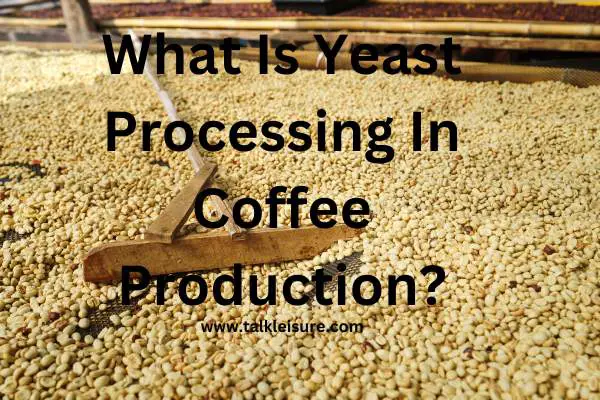
Processing coffee with yeast is a relatively new method that is becoming increasingly popular among coffee lovers.
It includes using certain yeast strains during the fermentation step of making coffee, which can make the beans taste and smell better.
In traditional coffee processing, the beans are left to ferment with the help of bacteria and other germs.
But with yeast processing, coffee makers put certain yeast strains into the tanks apart from other natural bacteria.
The yeast breaks down the sugars in the coffee beans, which makes different chemicals that add to the taste and smell of the coffee.
This can make the final cup of coffee taste sweeter, more fruity, or tastier.
Processing with yeast can also make the beans less likely to have flaws like sour or fermented tastes.
This is because the yeast helps to make the fermentation process more controlled and regular.
Does Coffee Have Yeast?
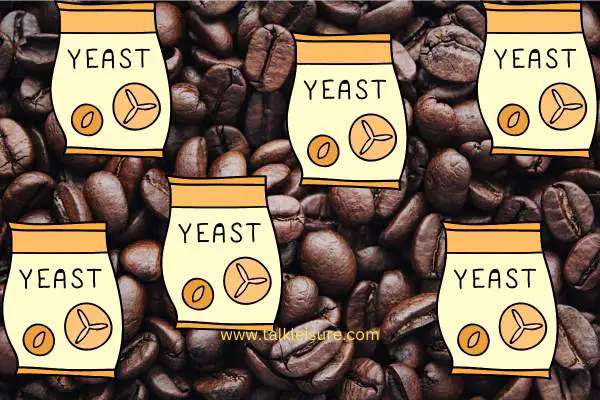
Since coffee beans are a type of seed from the coffee plant, they don’t have yeast.
But as part of the fermentation process, yeast may be present when coffee beans are processed.
Some coffee-making methods leave the beans in the water to ferment.
During this brewing process, yeast and other microorganisms naturally found in the environment may interact with the beans and help shape the coffee’s taste.
Some people might be worried about the yeast in their coffee, but it’s important to remember that most yeast is not dangerous to humans and is used to make many foods and drinks.
Also, the fermentation process in making coffee is carefully managed and watched to ensure a safe, high-quality product comes from it.
Is There Yeast In My Coffee Cup?

Yeast is a fungus often used in baking and boiling but not in making coffee.
So, its rare to find yeast in your coffee cup unless you put it there purposefully.
Roasted coffee beans are brewed with hot water to make coffee.
Yeast is not used in this process. But if you put milk or cream in your coffee and leave it out for a long time, yeast or other germs could grow in the dairy product.
It’s best to drink your coffee with dairy products as soon as you make them to stop the growth of microorganisms.
If you leave your coffee out for a long time, it could get contaminated with yeast and other bacteria.
However, yeast isn’t very common in coffee, and it’s always a good idea to follow food safety rules and eat fresh foods as soon as possible to avoid any possible health risks.
Can Yeast Processing Improve The Quality Of Coffee?

The coffee business has recently become more interested in yeast processing to make coffee taste better.
Coffee beans naturally have different kinds of sugars and amino acids that different types of yeast can use to make other flavour compounds.
Yeast processing usually involves washing and soaking coffee beans in water with a certain type of yeast for a long time.
However, one advantage of yeast preparation is that it can make coffee taste and smell better.
And using this process can produce a wide range of tastes, such as notes of fruit, flowers, and chocolate.
Yeast processing can also help create a more consistent and uniform taste profile.
They are best for coffee lovers who want to make unique, high-quality coffee blends.
Research shows processing yeast has led to positive effects, such as better sensory profiles and higher cupping scores.
However, yeast processing is a useful way for the coffee business to improve the taste and quality of coffee.
As the coffee business continues to change, it will be interesting to see how yeast processing and other new methods will change the future of coffee.
How Does Yeast Processing Affect Coffee’s Characteristics?
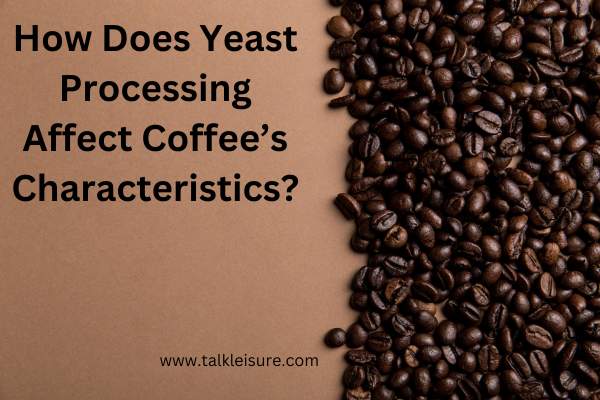
During the fermentation stage, the process includes adding certain yeast strains to the coffee, which can greatly affect the coffee’s final taste.
Yeast can make a variety of taste and smell compounds, such as fruity esters, floral notes, and spicy aromas that aren’t usually found in coffees. Also, yeast fermentation can make coffee more acidic, giving it more body and sweeter.
Coffee makers can choose certain yeast strains to get a taste profile and change the fermentation conditions to get the desired results.
For example, one yeast might make the coffee taste more like blueberries, while another might taste more like chocolate.
Because fermentation is more controlled than traditional processing, yeast processing can also make the final product more consistent.
And yeast processing can give coffee fans a wide range of unique and different flavors to try. This is an exciting new development in the world of specialty coffee.
What Coffee Has Yeast?
Some kinds of coffee are known to contain yeast. Here are a few types of coffee that have yeast:
Natural Processed Coffee: This coffee is dried with the fruit still on it.
The fruit makes a better place for yeast to grow so coffee beans can brew.
Honey–processed coffee: This coffee is made by drying the beans while some fruit is still on them. The leftover fruit makes a sugary environment where yeast can grow, turning the beans into alcohol.
Wet Hulled Coffee: It is made differently than most other types of coffee. The beans are taken out of the fruit before they are completely dry. This leaves a layer of mucilage on the beans, which can help yeast grow.
Fermented Coffee: Some coffee makers ferment their coffee beans to make the taste more interesting. In this process, yeast can also grow.
It’s important to remember that not all types of coffee have yeast, and just because coffee has yeast doesn’t mean it’s bad or dangerous to drink.
Some coffee experts look for yeasty coffees because they like the way they taste.
Can You Drink Coffee With Yeast Infection?

According to many researchers, drinking coffee doesn’t directly impact Yeast infection. So, it’s okay to drink coffee under the guidance of medical professionals.
But knowing that some foods and drinks can worsen symptoms is important.
Candida overgrowth can happen in different parts of the body.
And it causes yeast infection.
If you have yeast infection, it’s best to talk to a doctor to determine how to treat it.
Also, keeping clean and avoiding things that can worsen conditions is important.
Most people can drink coffee without problems, but it’s important to follow advice from your doctor.
Talk to a healthcare provider if you are worried about your symptoms or have questions about your diet
Can Coffee Give You A Yeast Infection?
Coffee doesn’t directly cause yeast infection.
But drinking too much coffee or other drinks with caffeine can throw off the body’s normal pH balance and help yeast grow.
Candida, a fungus that lives in the body in small amounts and can cause yeast problems, grows too much.
Yeast infections can also be caused by a weak immune system, taking medicines, hormonal changes, and eating a lot of sugar.
Eating well and drinking less coffee is recommended to lower the chance of yeast infections or other health problems.
Does Caffeine Increase Yeast Growth?
Some researches showing that caffeine makes yeast grow faster.
This may be because caffeine speeds up the yeast cells’ metabolism, giving them more energy to grow and make more yeast.
However, the amount of caffeine’s effect on yeast growth depends on the type of yeast and the amount of caffeine used.
So, still, more study is needed to understand the link between caffeine and yeast growth.
Is It Ok To Drink Coffee On Yeast Free Diet?

You might wonder if drinking coffee is acceptable if you follow a yeast-free diet.
The answer is that it depends on the type of coffee you consume. But as coffee does not contain yeast, you can usually drink regular black coffee while following a yeast-free diet.
Nevertheless, you must ensure that any milk, cream, sugar, or other sweeteners you use in your coffee are also yeast-free.
Furthermore, some individuals may be sensitive to caffeine and develop negative side effects like jitters, anxiety, or insomnia.
So, avoiding or consuming less coffee in such circumstances is recommended.
Additionally, reading labels and paying attention to what you put in your body, including what you put in your coffee, is crucial if you’re following a yeast-free diet.
Is Coffee Good For Fungal Infection?
There isn’t enough proof to say that coffee affects curing fungus infections.
But caffeine and polyphenols are substances found in coffee that have anti-fungal capabilities.
However, their levels may not be high enough to affect fungal infections.
Additionally, excessive coffee consumption might negatively impact your immune system, making it more difficult for your body to fight against fungus infections.
This is because coffee can boost the production of stress hormones, which may harm the immune system over time.
Also, It’s essential to consult a healthcare provider if you have a fungal infection to decide on the best course of treatment.
This can involve using antifungal drugs or other therapies specially made to deal with the kind of fungus that is the source of your infection.
Does Coffee Affect Candida?
Candida is a form of yeast that can infect the body, especially the mouth, throat, and genitalia. Like many other foods and beverages, coffee includes substances that may impact Candida’s development.
According to research, caffeine in coffee may prevent Candida from growing in a lab setting. However, the effects of coffee on Candida in the human body are unclear and could differ based on some factors.
Additionally, sugar and other sweets are frequently added to coffee, which might encourage the growth of Candida.
Also, excessive coffee consumption could decrease immunological function and increase the risk of Candida infections.
However, the connection between coffee and Candida is complicated and may be influenced by a range of factors, such as a person’s general health, how much and how often they drink coffee, and other dietary and lifestyle aspects.
Always seek qualified medical advice if you are worried about Candida infection.
Does Decaf Coffee Cause Yeast Infection?
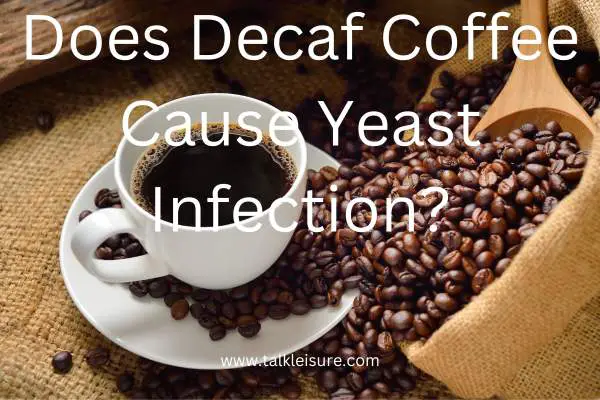
If you are wondering does decaf coffee causes a yeast infection, decaf coffee does not cause a yeast infection.
The fungus Candida, which can develop excessively in warm, wet places like the vagina, mouth, or gut, is the reason for yeast infections.
Decaf coffee is not associated with yeast infections, even though caffeine has been found to encourage the growth of Candida.
Some research indicates that drinking decaf coffee may have certain health advantages, including a lower chance of developing type 2 diabetes and liver disease.
However, Decaf coffee is still acidic and might cause digestive system irritation in some people, so it’s better only to drink a small amount of it.
It’s important to consult a doctor for a proper diagnosis and treatment if you have yeast infection signs, including itching, burning, or discharge.
Although decaf coffee does not induce yeast infections, other factors, including taking antibiotics or having a weakened immune system, can impact their growth.
Conclusion
Coffee has been a favourite beverage for many people worldwide for ages.
With this popularity, curiosity increased about the components of coffee and the probable existence of different microbes, including yeast.
Although some studies have revealed that coffee may contain small levels of yeast, most experts agree that these concentrations are likely insignificant and will be easy for most coffee users.
Furthermore, the presence of yeast in coffee only sometimes indicates a low level of quality or safety.
In actuality, yeast can be a natural component of the fermentation process for coffee and help to create distinct flavor profiles of various varieties of coffee.
Even while studies on coffee and yeast are ongoing, most coffee drinkers dont affect how much they enjoy this beloved brew.
FAQ
Can You Drink Coffee If You Have Yeast Allergy?
As long as the coffee beans don’t contain any yeast, a person with a yeast allergy can drink coffee. However, the individual may still experience symptoms if they are sensitive to other elements frequently found in coffee, such as histamine or caffeine.
What Drinks Have Yeast In Them?
Drinks that include yeast include beer, wine, kombucha, cider, and kvass.
As these drinks ferment, yeast is added to help turn sugars into alcohol and carbon dioxide. These beverages are famous worldwide and come in various flavours, including sweet, sour, alcoholic and non-alcoholic options.
What Foods Are High In Yeast?
Bread, beer, wine, and nutritional yeast are foods high in yeast. Because they are made by fermenting yeast with other substances, these meals are high in yeast. Due to fermentation, some baked items, such as sourdough bread and pizza dough, also contain significant yeast levels.
Does Yeast Change The Taste Of The Coffee?
Because yeast is not a typical element in the brewing or processing of coffee, it usually does not alter the flavour of the coffee. However, specific processing techniques could involve yeast fermentation and affect the coffee’s flavor profile.
Enjoy your cup of joe!
Read For More








